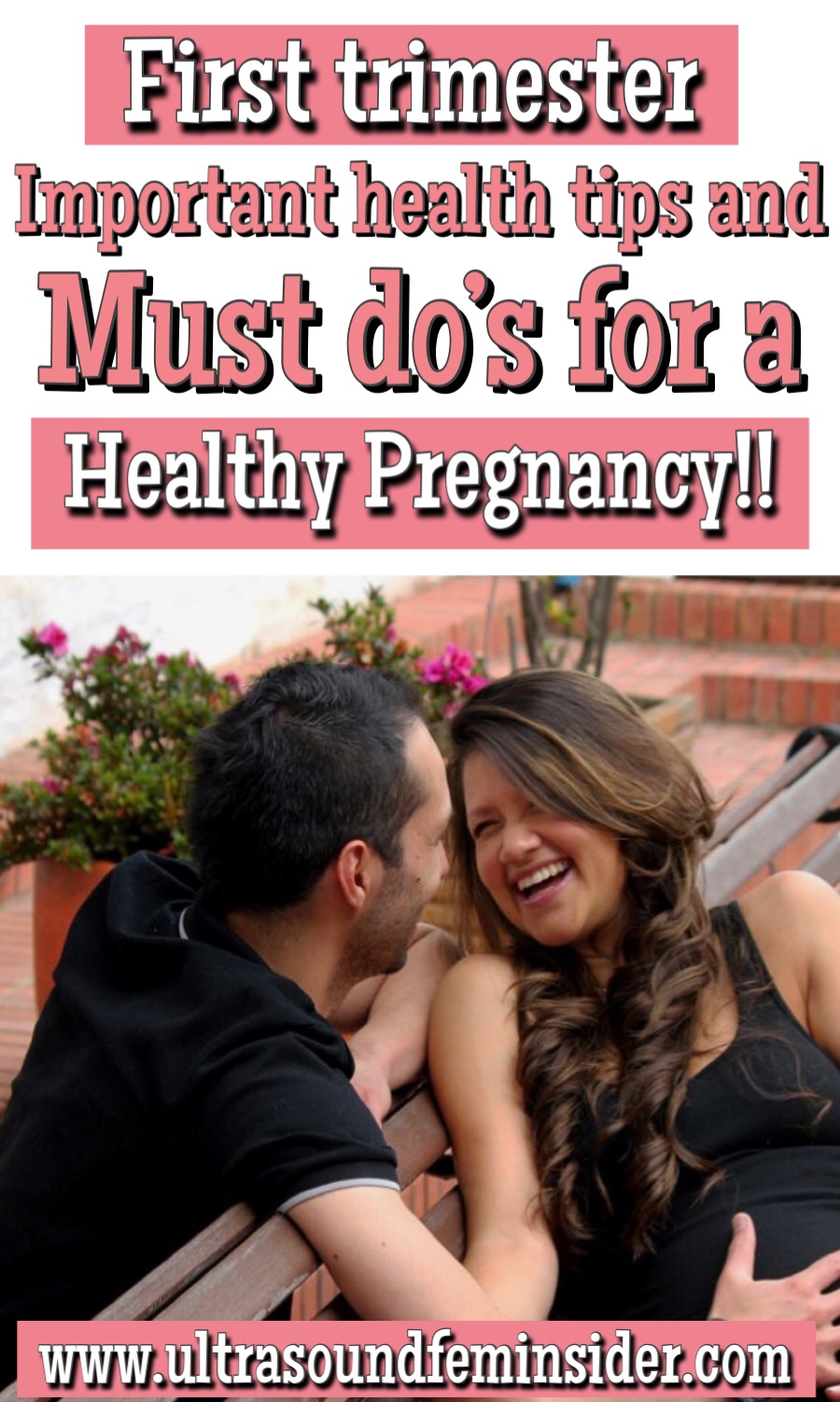Pregnancy is the most magical, perfect and beautiful stage of any woman’s life. No one can imagine all the things that must be perfectly aligned for a pregnancy to begin and continue in a healthy and natural way. In this article I am going to give you important advice for new moms, and the things you should know about the first trimester of pregnancy.
The first trimester is considered the first 13 weeks of pregnancy, in these first 13 weeks the biggest growth and development of your baby occurs, just as in your body many hormones begin to adjust and change, the symptoms of pregnancy begin and there are many emotions found, It is a beautiful stage for some, for others it can be a difficult stage, if you are pregnant or getting ready to be, keep on reading because this article will be helpful to you.
Advice for new moms.
General symptoms of the first trimester.
Energized:
Perhaps you are one of the women that are overjoyed with the news of your pregnancy, you have been dreaming about this moment and now it’s finally happening in front of your eyes. Enjoy indeed, because this is the most precious time of your life, and unfortunately it happens fast.
Ambivalent:
You might feel on denial, asking yourself, how is this happening?, that’s OK too, Thinking that you are not ready, feeling stress is all part of the emotions and is also a momentarily feeling, I can assure you, you will be the happiest woman alive in no time.
Fears:
It’s normal to have concerns and fears about the big change that is coming to your life.
Fatigue:
On the first-trimester hormonal changes are likely to cause fatigue. Also, your body is producing more blood to carry the nutrients and oxygen to your growing baby. Your blood sugar levels and blood pressure are also lower. The increased progesterone is responsible to make you feel sleepier than usual. And finally, Emotional changes in your body can be responsible for fatigue as well.
Bloated:
It happens because of your uterus takes more space in the pelvic area and you tend to be constipated easily. The changes in predominant hormones slow digestion and on top of all that you gain weight.
Constipation or indigestion:
Increased progesterone levels cause smooth muscles to relax. That includes your intestines and digestive tract. This relaxation increases the time it takes to digest your food and gives the baby more opportunity to absorb the much-needed nutrition. The fetus also takes water from the mother, causing mom to have dry stools. It takes longer to expel the stool and increases the gas and bloating in the process.
Cramping and pelvic pressure:
Is mainly due to the rapid growth of your growing uterus, experiencing menstrual-like cramps is not uncommon,
Tender and swollen breasts:
Increased hormone levels during pregnancy enhance the blood flow and produce changes in the breast tissue, which may make your breasts feel swollen, sore, tingly, and unusually sensitive to touch. Some women describe the sensation as painful, or as an extreme version of how their breasts feel right before their period.
No appetite, Food aversions or an enhanced sense of smell:
Some foods are appealing while others may make you feel sick, is all related to hormonal changes in your body once again.
Frequent urination:
This is a very common symptom, and is due to your growing uterus that is starting now to press against your body. However, call your doctor immediately if you experience burning with urination.
Important tips about nutrition during the first trimester.
- Remember to take daily your prenatal pills, if you are suffering from nausea, taking the pills before bed can solve the problem.
- Eat small, healthy snacks or half-sized meals more frequently throughout the day. And try to stick to a balanced diet.
- To help your intestines with constipation you can increase fluids up to 6 glasses of water a day, fresh fruits and veggies will be beneficial as well.
- To maintain stable your blood sugar levels and blood pressure stable try to feed your body ( and baby ) every few hours, don’t fast for long periods of time.
First-trimester To-do-list.
- Your first doctor’s appointment is a MUST. On the first trimester, you’ll need labs. To identify your blood type and Rh (rhesus) factor. Screen for anemia. Check for immunity to rubella (German measles), and test for hepatitis B, syphilis, and HIV and other sexually transmitted diseases. And your doctor may also want to check your levels of hCG, a hormone secreted by the placenta, and/or progesterone, a hormone that helps maintain the pregnancy.
- Learn, arrange and discuss genetic counseling. This testing provides an assessment of your chances of having a child with a genetic or chromosomal condition. And is the opportunity to discuss risks, benefits, and limitations of genetic testing, the options of prenatal testing are ( NIPT, CVS, AMNIOCENTESIS)
- Start documenting your pregnancy.
- Call your insurance to learn about your coverage, if you don’t have insurance, is the time to get one.
- Try to rest as much as you can: the process of creating a baby inside your body is not easy, it requires a lot of energy.
- Try to incorporate some exercise into your daily routine.
- Sign up for some parenting classes, usually, you can find these in your local hospital or medical office after you go for the first visit.
- Ask your doctor about the Harmony prenatal test. This is a non-invasive Blood test that helps determine the risk of common genetic conditions such as Down syndrome. This test has a time window, is done at 10 weeks, and it has a bonus, you can request to know the gender of your baby.
Our latest video. To visit our YouTube channel, check this link.
Related posts you might like to read!!
Pregnancy guidelines for a healthy pregnancy.
Having a baby on a budget, 9 easy and powerful tips to do it.
Fetal development during the first trimester.
- Incredible growth and development, a single microscopic cell will be a baby in 9 months.
- With only 4 weeks a tiny heart begins to beat. Two parts of the heart will develop separately. Then fuse to form a tiny organ that begins to beat rapidly, almost twice as fast as yours.
- The outer layers of cell will develop the brain, nerves, skin and hair.
- The middle layers will grow into bones, muscles, blood vessels, blood, the kidneys and reproductive organs.
- The inner layers of cells will develop the liver, intestines, urinary tract, and the lungs.
- By the second month the vital organs start to works, bones and muscles started to grow.
- The face started to takes shape.
- The eyes started to get their color.
- The umbilical cord will be formed at the end of the second month. This will bring nourishment, and oxygen through the placenta.
- The arms started to grow and can be bent by the second month.
Pin the post here!!!
In conclusion about Advice for new moms, the first trimester of pregnancy.
As you can see the first trimester is fascinating. The growth and development of your baby is incredible. And although you still can’t feel it, you already know that there is a heart beating inside you.
Nourish your soul and your body in these 13 weeks. So that your baby can be a happy and a normal human being. If you like this article, share it with other moms. Thanks for reading.
Zadi, XO










